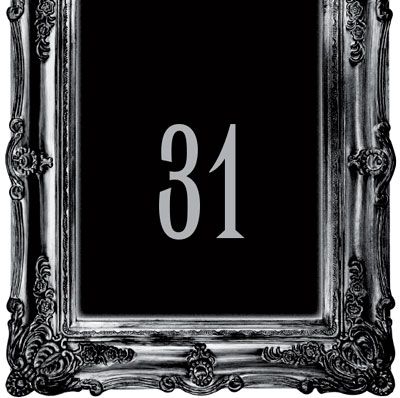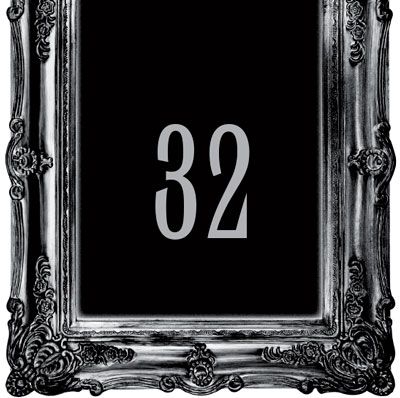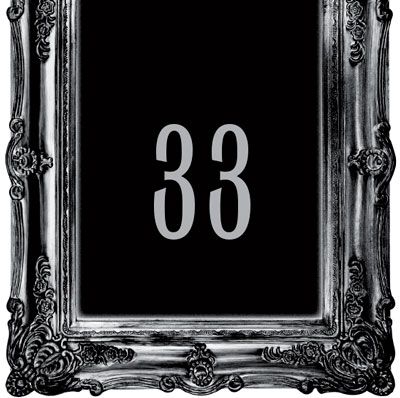Insatiable Appetites (15 page)

Stone’s phone rang. “Hello?”
“It’s Carla.”
“Did you talk to him?”
“Yes, and he’s a mixture of broken up and mad as hell. Hills called him this afternoon and gave him your address. The man’s name is Bruce Willard. He was going to meet Hills in New York on Sunday.”
“Did he say where Hills was staying?”
“At the Lowell, Sixty-third and Madison. It was Hills’s regular place in the city.”
“Hang on.” Stone covered the phone. “Hills was staying at the Lowell.”
“That’s in my block.”
“I know.”
Dino got on his phone and Stone went back to his. “The recording was on Hills’s iPhone,” he said, “and it’s been copied to mine. The police have sequestered the phone and it won’t be mentioned when they release Hills’s name to the press tomorrow morning. They haven’t been able to reach his father.”
“He’s reclusive, I hear. I’ll see if I know someone who can reach him. Can I send someone to where you are to pick up the recording?”
“Let’s take care of that tomorrow. I’ll transfer it to tape and FedEx it to you.”
“All right. Good night.”
Stone hung up. “She’s going to try to reach Hills’s father. Apparently he’s something of a recluse.”
They finished dinner, then Dino dropped off Stone at home.

Stone had just gotten into bed when his phone rang. He picked up the bedside handset. “Hello?”
“Mr. Barrington? You don’t know me. My name is Bruce Willard. Evan Hills gave me your number this afternoon.”
“I know who you are, Mr. Willard. Evan mentioned you.”
“I called the New York police and tried to find out what happened to him, but they wouldn’t talk to me, because I wasn’t a family member. Can you tell me what happened?”
Stone brought Willard up to date on the hit-and-run and subsequent events.
“Do you know what’s on the recording?”
“I haven’t listened to it yet, but I believe it was made at the meeting that Evan has been talking to Carla Fontana about.”
“Nothing else?”
“Not that I know of.”
“What will be done with the recording?”
“It will go to Carla, at the
Times
.”
Times
.”
“I’m supposed to have lunch with her tomorrow.”
“She’ll have the recording by that time.”
“I suppose Evan told you he was worried about those people coming after him.”
“He did tell me that, and I tried to ease his mind. That kind of thing happens only in the movies. American politicians don’t actually kill each other, though I’m sure there are times when they’d like to.”
“I wouldn’t be too sure about that,” Willard said.
“Did Evan give you any details of exactly whom he was afraid of?”
“No, he was vague, he just referred to ‘them.’”
“A witness said on TV that Evan was jaywalking, so it could be an accident, and the driver just panicked. Often in these cases the driver will talk to the police later.”
“There was one name that Evan mentioned. He works at some lobbying firm in Washington, for several right-wing groups. His name is Creed Harker…” He spelled the name. “Evan said his specialty was dirty work.”
“Did he say what kind of dirty work?”
“Tampering with elections, character smears, taking pictures in bedrooms—creepy stuff. Evan thought he’d do anything he was paid to do.”
“Have you ever met him?”
“Evan once pointed him out to me in the lobby of the Four Seasons Hotel in Georgetown: very tall, wiry, bald as an egg, no eyebrows. He looks like a space alien in a bad movie.”
“Did Evan say anything else about him?”
“Just that he wouldn’t like to meet him in a dark alley.”
“Well, Mr. Willard, talk to Carla and keep reading the
Times
. They’re going to be writing a lot about this.”
Times
. They’re going to be writing a lot about this.”
“All right, Mr. Barrington. Thank you for your time.”
“And, Mr. Willard, I’m very sorry for your loss. He was a nice man.”
“He was a lot more than that, Mr. Barrington, but thank you for the sentiment.” Willard hung up.
Stone felt sorry for the man.
The following morning when Stone went down to his office, he found a thick envelope on his desk. Joan came in with some phone messages.
“Where’d this come from?” he asked, holding up the envelope.
“It was on the hall table in the waiting area,” she said. “Maybe Mr. Hills left it.”
Stone slit open the envelope and took out several pages. There was a letter on fine stationery, handwritten.
Dear Mr. Barrington,
There’s no one I can trust in Washington with this, so I’m turning to you. I hereby appoint you as my sole attorney and legal adviser and as executor of my estate. I enclose the original of my will, recently drawn and witnessed by three of the staff at the Georgetown Four Seasons Hotel, where I frequently lunch and dine.
This is not a spur-of-the-moment decision. I’ve thoroughly checked you out, and I’m very satisfied with what I’ve learned about you. My will is as simple and clear as I know how to make it, and I’m a pretty good lawyer myself.
I enclose a copy of the recording I told you about and a check for a retainer. You may bill me at the above address for any further charges. Thank you for your consideration in this matter.
Cordially,
Evan Hills
There was a mini-cassette enclosed and a check for $25,000, drawn on a Georgetown bank.
Stone read the will and the attached financial statement. He had left a dozen or so bequests to employees, congressional staff members, and arts organizations, and the remainder of his assets were left to Bruce Willard, of a Pennsylvania Avenue address in Georgetown.
Hills’s property included a house in Philadelphia, another in Bucks County, Pennsylvania, a house in Georgetown, and three investment accounts showing cash and securities in excess of twenty million dollars. He had no debts older than thirty days, and the will was dated two days before.
Joan was still standing in the door. “Anything?”
“We have a new client,” he said, handing her everything but the mini-cassette. “He died yesterday, so start a file.” He held up the mini-cassette. “Duplicate this, and FedEx one of the copies to Carla Fontana, at the
New York Times
Washington bureau.”
New York Times
Washington bureau.”
“Got it,” Joan said, and left his office.

Stone was tidying up his desk at the end of the day when he heard the doorbell ring, and Joan buzzed him.
“There’s a Mr. Bruce Willard to see you,” she said. “He says you know him.”
Stone sat back down. “Send him in,” he said.
A solidly built man of around six feet, with salt-and-pepper, closely cropped hair, appeared in the doorway, shucking off a sheepskin coat for Joan to take.
“Come in, Mr. Willard,” Stone said, catching a glimpse of hardware under the man’s tweed jacket. “Have a seat, and please give me the handgun you’re wearing. We don’t permit weapons in our offices, except those of law enforcement officers.”
Willard produced a 9mm Beretta, of the type used as a military sidearm, and handed it to Stone across his desk. Stone popped the magazine and ejected the round in the chamber onto his desktop, then he opened the small safe in his desk and secured the weapon. Finally, he offered his hand to Willard, who shook it with an iron grip. “How do you do?”
“Not very well,” Willard said. “I’m being followed.”
“By whom? Any ideas?”
“Some of them are in black SUVs,” he replied. “As paranoid as that may sound.”
“It doesn’t sound all that paranoid, when you consider that Evan Hills was run down by a black SUV. When did this start?”
“I first noticed them around noon, when I left my place of business to have lunch at the Four Seasons Georgetown with Carla Fontana. They were still around when I left the hotel, and I thought I spotted a couple of guys on foot.”
“What did they look like?”
“Like me,” Willard said. “Ex–Special Forces, very fit.”
“Where did you serve?”
“Two tours each, in Iraq and Afghanistan, and other places I can’t tell you about.”
“Your Beretta seemed well-used.”
“You could say that. I’m pretty well-used, myself.”
“What brings you to New York?”
“I don’t feel safe in D.C.,” Willard said. “You offered Evan refuge here—I hoped you might do the same for me.”
“Of course,” Stone said. He buzzed Joan and asked her to get the apartment next door ready.
“It’s been ready since yesterday,” she said.
“And please make a copy of those documents I gave you earlier and bring it to me.” Stone put the phone down. “You have an antiques shop on Pennsylvania Avenue in Georgetown, is that right?”
“Yes. It’s where I met Evan. He came in several times as a customer and we became friends. That was before he was elected to Congress.”
“Do you live over the shop?”
“Yes, why do you ask?”
“I was sent a document that listed your address as what sounded like the shop.”
“I have a duplex apartment upstairs and another that I rent.”
“Let me explain about the weapon,” Stone said. “New York City has a very tough weapons law, and it’s almost impossible for an ordinary citizen to get a carry permit, unless he can prove he’s routinely transporting large amounts of cash or jewelry. Possession is a serious matter and carries a prison sentence. The police don’t look kindly upon visitors to the city who arrive armed.”
“I understand. Thank you for telling me.”
“Did you fly here?”
“No, I rented a car and returned it here. I thought I might be less likely to be followed, and I didn’t notice anyone on my tail.”
“Do you mind if I ask you some questions about Evan—and you?”
“Not at all.”
“How long ago did you meet?”
“About three years ago.”
“When did you become more than just friends?”
“About three months after we met. Evan was very paranoid about being gay. He had worked in politics for years and had given large donations to his party, but he knew he’d be ostracized if he came out or was discovered. He wouldn’t visit me more than once a week, and when he did, he always bought some object or picture and left carrying it. His house is full of things he bought from me, and they were, without exception, the finest pieces I had to offer. He was my best customer—our relationship apart—and his taste was superb.”
Joan came in with the copies Stone had asked for.
Stone handed the letter from Hills to Willard. “He left this here on his visit yesterday.”
Willard read the letter carefully, then read it again.
Stone handed him the will. “And this.”
Willard read it and began to cry.
Stone was taken aback; Willard didn’t look like the sort of man who would allow himself to be seen weeping. He pushed a box of tissues across the desk, and Willard took a handful, dabbed at his face, and blew his nose noisily.
“I’m sorry for my conduct,” he said.
“You’ve nothing to be sorry for,” Stone replied.
“You see, Evan knew that the income from the shop and the apartment kept me operating pretty close to the line. All I have beyond that is my disability pension from the military.” He held up the will. “This changes everything for me.”
“I expect it does,” Stone said, handing him Hills’s financial statement.
Willard read it and began to weep again.

Other books
PEG BOY by Berube, R. G.
Darkness Unmasked (DA 5) by Keri Arthur
Taming A Duke's Reckless Heart: Victorian Historical Romance by Tammy Andresen
The Brontes Went to Woolworths by Rachel Ferguson
Sprout Mask Replica by Robert Rankin
The Body in the Kelp by Katherine Hall Page
Legacy of the Demon by Diana Rowland
The Black Cauldron (The Chronicles of Prydain) by Lloyd Alexander
A Virtuous Lady by Elizabeth Thornton
Starclimber by Kenneth Oppel